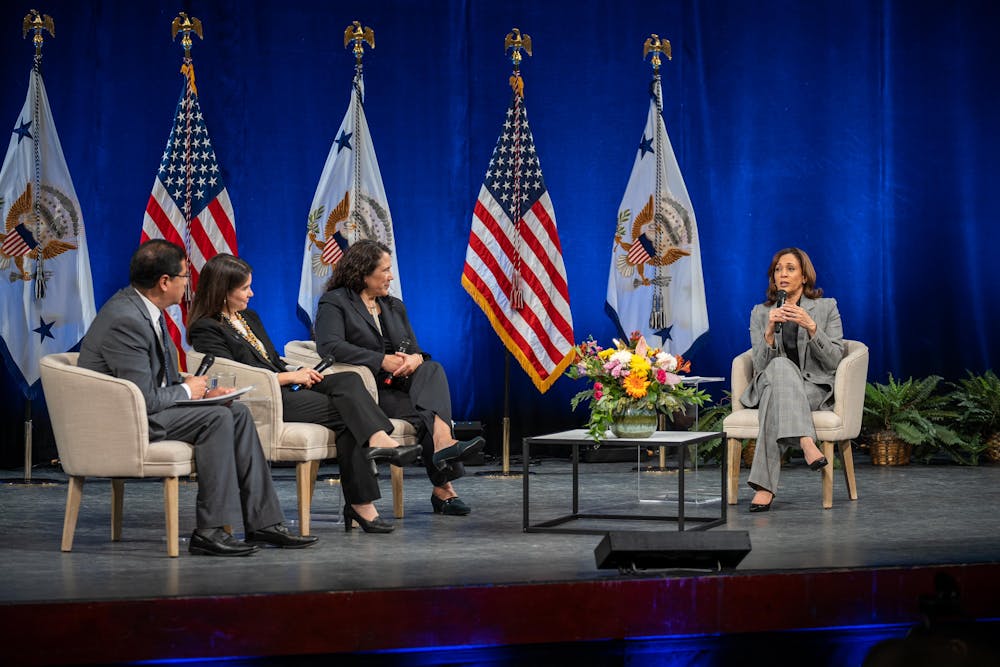Community lending initiatives are grassroots movements to connect communities to economic opportunities, according to Senior Vice President of the Latino Community Credit Union Vicky Garcia — but for places like Alamance County, they are few and far between.
The LCCU is a community development financial institution with a primary mission to provide local communities with ethical financial products and education to “empower and ensure” economic opportunity for all, according to its mission statement. The first branch opened in 2000 and in 2020 exceeded $594 million in assets.
“The Latino credit union was founded for Latinos, by Latinos,” Garcia said. “We're not only creating value through initial knowledge, the focus as well, but we are also helping them to stay, create roots, and participate and contribute to the community in general.”
Garcia participated in a panel discussion with Vice President Kamala Harris and Isabella Casillas Guzman, administrator of the U.S. Small Business Administration, at the A.J. Fletcher Opera Theater in downtown Raleigh on Jan. 30. The discussion, moderated by Jorge Buzo, local Univision affiliates’ news and community coordinator and a former Telemundo anchor in Atlanta, discussed the importance of small businesses and the work of community lending initiatives, such as the LCCU.
“When I think of small businesses, I think of it in two ways,” Harris said. “What we do to support small businesses, and what we must do to support small business owners.”
Harris and panelists discussed some of the obstacles facing business owners, including language barriers, lack of financial literacy and access to capital.
“Things that have nothing to do with the capacity of the individual and nothing to do with their spirit of innovation and ambition,” Harris said.
Credit unions such as LCCU are able to help address the barriers prospective business owners may face by hiring employees who are members of the community they serve. According to the U.S. Census data from 2021, 10.2% of the state population identifies as Hispanic or Latino. In Alamance County, 13.7% of the population identifies as Hispanic or Latino.
“They understand the capacity of the community, they understand the culture of the community, the worries of the community, what the community wants for itself,” Harris said. “They look at the whole human being in terms of that small business owner, and they can see them.
Former District 63 Representative Ricky Hurtado, who attended the panel, said bringing community lenders like LCCU to Alamance County was one of the initiatives he wanted to do while he was in office, and is now pursuing out of office, as well.
“Individual business owners do have a relationship if they need it, it's not too far away, the closest branch is in Carrboro,” Hurtado said. “But I think it’d be a real benefit if we actually saw greater physical presence in our community, so that’s something I am really interested in pursuing.”
There are 15 physical LCCU locations across the state. LCCU is a credit union, which differs from a bank because unlike most banks, LCCU and most credit unions are not for profit.
“The Latino Credit Union was founded by Latinos for years and is actually administered by them,” Garcia said. “It is an example of how the grassroots movements in North Carolina have created something that can put the economic opportunity there for Latinos.”
Garcia said the LCCU is “the best kept secret” and encourages everyone, especially Latinx and Hispanic citizens, to consider LCCU.
“This is a moment right now … in Alamance County that our focus is shifting from big industrial businesses to small businesses because they understand that’s the heart of our downtowns and our economy,” Hurtado said.


